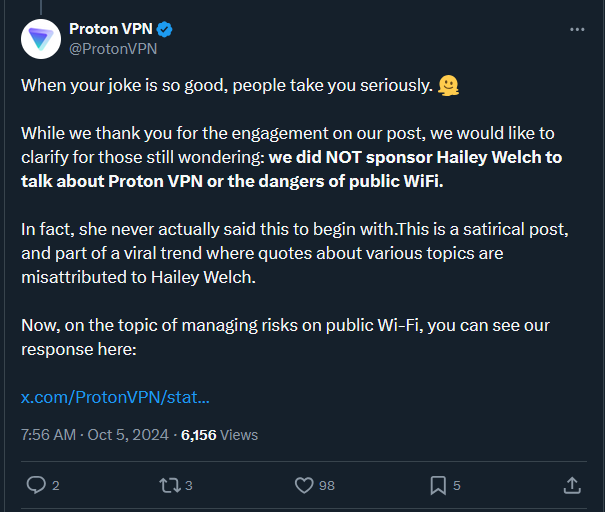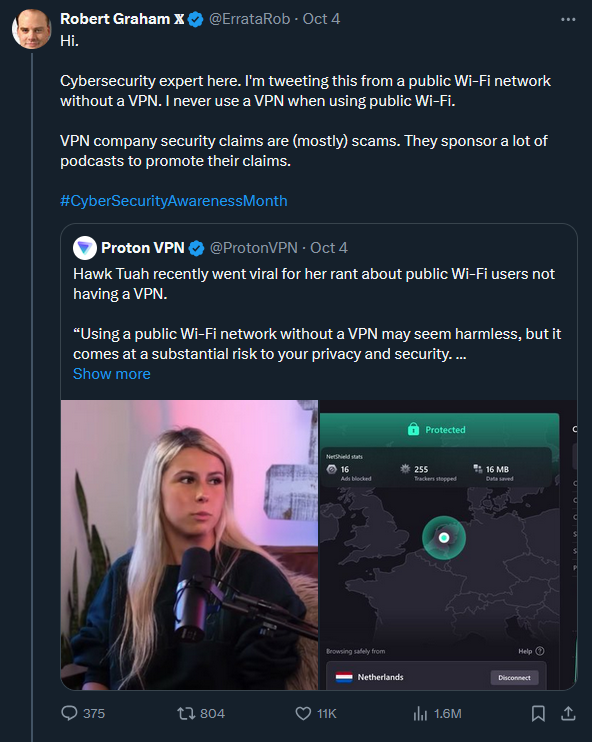this post was submitted on 06 Oct 2024
735 points (90.8% liked)
Technology
59378 readers
3539 users here now
This is a most excellent place for technology news and articles.
Our Rules
- Follow the lemmy.world rules.
- Only tech related content.
- Be excellent to each another!
- Mod approved content bots can post up to 10 articles per day.
- Threads asking for personal tech support may be deleted.
- Politics threads may be removed.
- No memes allowed as posts, OK to post as comments.
- Only approved bots from the list below, to ask if your bot can be added please contact us.
- Check for duplicates before posting, duplicates may be removed
Approved Bots
founded 1 year ago
MODERATORS
you are viewing a single comment's thread
view the rest of the comments
view the rest of the comments


I don't understand why everyone assumes using a VPN means paying for a third party. I have Wireguard deployed in my NAS and I always have that VPN connection active on my phone to be able to access my LAN deployed services remotely, Jellyfin for example.
Most VPNs sell themselves on encrypting your traffic to an endpoint that either is in a different locale to get around region locks or to put it out of the grasp of the RIAA so they can’t send your ISP copyright notices.
While remote access to a local network is a good use case for a self-hosted VPN it’s totally unrelated to the use case for commercial VPNs
For the use case of encrypting your traffic while using a public WiFi, both commercial VPNs and self-hosted ones provide the same functionality.
I think the point they're getting at Is that you can't use a self-hosted vpn to hide your piracy activity because the link is registered to yourself.
Yes, but this thread is about security while using public Wi-Fi, which the original comment was saying doesn't require commercial VPNs.
And I highly doubt people are pirating while on public wi-fi, the bandwidth just isn't good enough, and even if it was, it would be a dick move to other public wi-fi users.